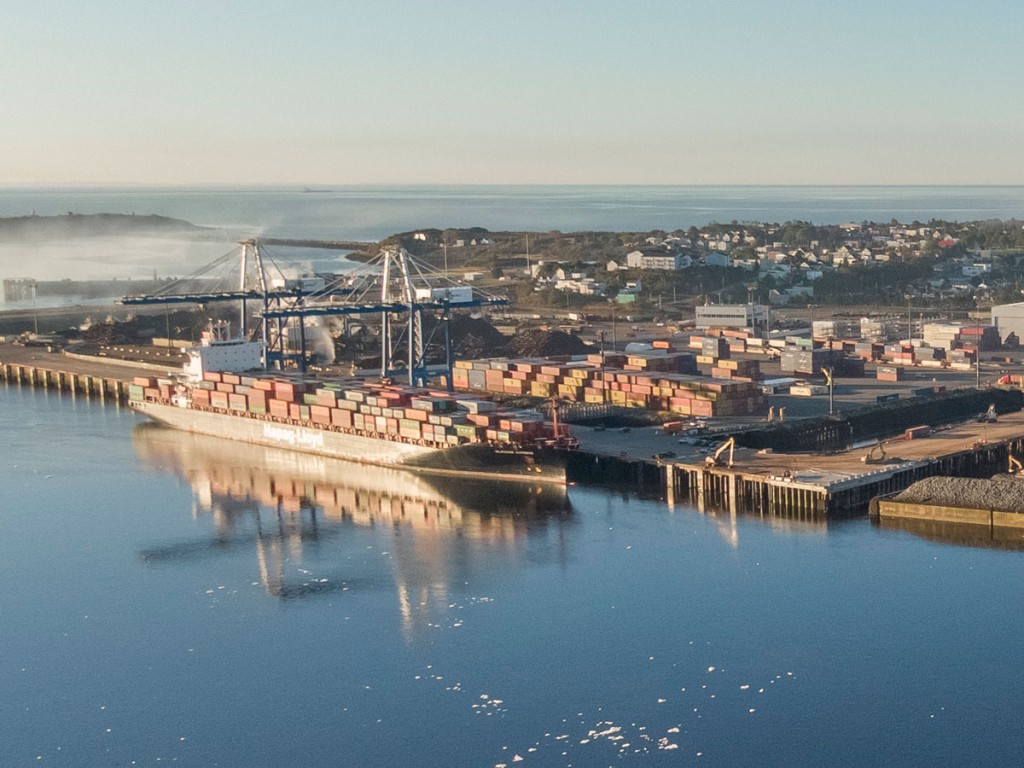Third Quarter Statistics Show Significant Year-over-year Increases, some cargo sectors as much as 128%
Overall cargo tonnage at Port Saint John in the first three quarters of 2021 is 19% higher than over the same period in 2020. The first three quarters of 2020 saw 18.6 million tonnes of cargo, with 2021 experiencing 22.2 million tonnes by the end of September.

Several major developments occurred in 2020 and 2021 that will continue to positively impact container cargo at Port Saint John. These are:
- The continuation of the $205 million West Side Modernization Project which is due to be complete in 2023 in funding partnership with the Government of Canada, Province of New Brunswick, and Port Saint John.
- The launch of CP Rail’s East Coast Advantage strategy and rail services through acquisition and improvement of the former CMQR line in the State of Maine, solidifying Port Saint John as the only Atlantic Canadian port with two Class I national rail providers. And,
- The 2021 start of ocean carrier Hapag Lloyd’s regular container service, joining MSC and CMA CGM as regular container service providers at the Port.
“We are focused on growth in the container sector together with our terminal operator DP World, who are blending their global reach and influence with the benefits of our West Side Modernization Project to achieve the common objective of sustainable growth. Continuing to build strong foundations with our partners in the rail and shipping sector is another essential component of supply chain innovation as we continue to move forward in modernizing this Port,” said Captain Chris Hall, Interim President & CEO of Port Saint John.
In other cargo sectors, dry bulk cargoes are experiencing a year-to-date increase of 128%. Two main commodities are driving this increase, potash and recycled metals. Potash was at 444,550 tonnes at the end of September 2020 and is at 1.25 million tonnes at the end of September 2021. Recycled metals in 2020 was at 147,230 tonnes at the end of September and is at 234,989 tonnes as of the September 30, 2021.
The liquid bulk sector is also experiencing a year-over-year increase at 16% higher than the same period in 2020.








